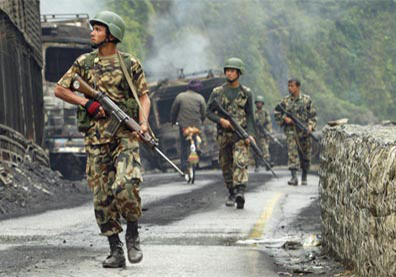
Jun 26, 2016
Nepal’s new anti-torture bill is a welcome effort, but it must be revised to comply fully with international human rights law, the ICJ said in a briefing paper released today.
“Nepal’s anti-torture bill is a significant development, and has the potential to be an important step towards countering the systemic impunity for gross human rights violations in the country,” said Sam Zarifi, ICJ’s Asia Director.
“It is therefore crucial that the Bill be revised to fully comply with international human rights law,” he added.
In a 37-paged briefing paper released today, the ICJ has analyzed the Torture and Cruel, Inhuman or Degrading Treatment (Control) Bill, 2014 against relevant international law and standards, finding that several provisions of the bill are inconsistent with Nepal’s international obligations.
Major problems include the definition and scope of torture and other ill-treatment in the Bill, the existence of a limitation period for filing complaints, the disproportionately low severity of penalties imposed, and the failure to provide access to effective remedies and reparations for victims.
The briefing paper is released at a time when the United Kingdom is prosecuting a Nepali military officer, Colonel Kumar Lama, for allegations of torture and other ill-treatment during Nepal’s decade long internal armed conflict (photo).
“There are several other instances of torture and other human rights abuses during the conflict era that remain uninvestigated. It is high time that Nepal puts in place a strong anti-torture law that challenges entrenched impunity and enables victims to seek justice and accountability,” Zarifi said.
To this end, the ICJ has made a serious of recommendations in the briefing paper, which include:
- Revising the Bill to reflect the definition of torture and cruel, inhuman and degrading punishment in a manner consistent with the Convention against Torture and other international instruments
- Increasing the maximum penalty provided in the Bill, and providing for enhanced punishment for the supervising officer when he / she is complicit in torture
- Removing the limitation period for filing complaints and lodging cases
- Removing any penalties for the alleged filing of “fake” complaints
- Ensuring the right to all forms of reparation, not only compensation, when there are reasonable grounds to believe that torture or ill-treatment has taken place, and irrespective of the existence or outcome of a judicial proceeding
- Including a provision enabling authorities in Nepal to prosecute individuals accused of torture and ill-treatment, irrespective of their nationality and where the crime was committed
- Revising the Bill to be fully consistent with the international principle of non-refoulement, which prohibits the extradition, deportation, expulsion or removal in any other way of a person to a territory where there is a real risk of torture or other ill-treatment
- Placing obligations on specific State institutions to establish preventive programs for torture and monitoring their implementation.
Nepal-Torture Bill-Advocacy-Analysis Brief-2016-ENG (full text in PDF)
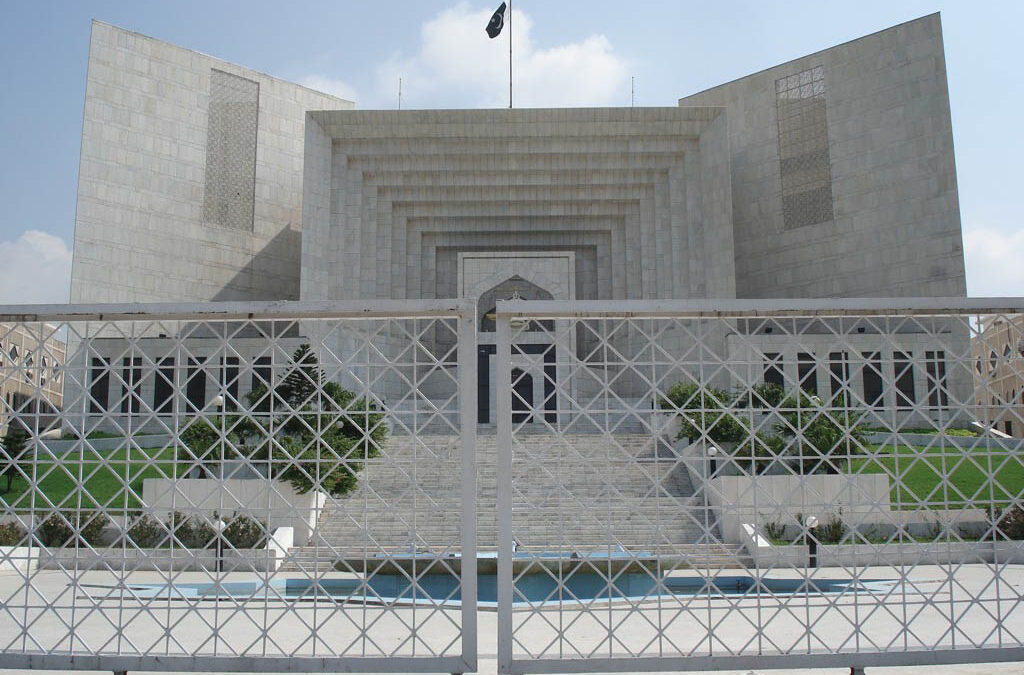
Jun 23, 2016
The Pakistan government must stop putting civilians charged with terrorism-related offences on trial before military tribunals, said the International Commission of Jurists (ICJ) in its Briefing Paper Military Injustice in Pakistan released today.
Since January 2015, when Pakistan empowered military courts to try civilians for terrorism-related offences, 11 military courts have been constituted to hear cases related to terrorism.
These 11 military courts have thus far concluded the trials of 105 people, finding the defendants guilty in 81 cases. Seventy-seven people have been sentenced to death and four have been given life sentences. At least 12 people have been hanged after trials that are grossly unfair.
“There is no doubt that the Pakistan government has an obligation to protect people in Pakistan from terrorist acts, but military tribunals are not a proper or effective response to this real threat,” said Sam Zarifi, ICJ’s Asia Director.
“These tribunals are opaque and operate in violation of national and international fair trial standards, and so are not effective in providing justice, truth or even proper remedies for the victims of terrorism,” he added.
Families of 17 people convicted by military courts have alleged the convicts were denied a right to a fair trial in petitions to the Supreme Court. The Court is expected to issue rulings on the petitions imminently.
Specific violations alleged by the petitioners include: denial of the right to counsel of choice; failure to disclose the charges against the accused; and failure to give convicts copies of a judgment with evidence and reasons for the verdict.
In some cases, the petitioners have alleged the convicts were subjected to enforced disappearance and torture and other ill-treatment, and in at least two cases, the petitioners have also alleged that the convicts were children under the age of 18 at the time they were arrested by law enforcement agencies.
Recent media reports of letters said to be from a judge (unnamed) of a military court have raised concerns about the accuracy of the testimonies against the accused; discrepancies between the charges and the evidence provided; and lack of legal training of military courts’ officers.
The ICJ is not in a position to verify the authenticity of the letters, but, noting the consistency of these concerns with those expressed by the ICJ and families of people convicted by military courts, the organization calls on the Pakistan government to investigate the allegations.
The ICJ reminds that in August last year, the Supreme Court upheld the legality of the trial of civilians before military courts in contravention of long-established principles of international law and the Court’s own jurisprudence.
“The Supreme Court now has the opportunity to ensure that at the very least, the procedures of military courts meet basic standards of fairness,” Zarifi said.
The expansion of the jurisdiction of military tribunals through the amendments to the Constitution and the Pakistan Army Act were a key part of the Pakistani government’s 20-point “National Action Plan”, adopted following the horrific attack on the Army Public School in Peshawar in December 2014.
NAP envisioned military courts to be a short-term “solution” to try “terrorists”, to be operational only for a two-year period during which the Government would bring about necessary “reforms in criminal courts system to strengthen the anti-terrorism institutions.”
“Now, with just six months left before the 21st Amendment expires, Pakistan has also failed to address failures of the criminal justice system, which were used as a justification for military trials for militants,” Zarifi added.
The ICJ has called on the Pakistan government to roll back the system of “military injustice”, and ensure that the 21st Amendment is not extended at the expiration of the sunset clause.
The ICJ has also urged that Pakistan reinstate a moratorium on executions with a view to abolishing the death penalty in law and practice.
Contact
Sam Zarifi, ICJ Asia Pacific Regional Director (Bangkok), t: +66 807819002; e: sam.zarifi(a)icj.org
Reema Omer, ICJ International Legal Adviser for Pakistan (London), t: +44 7889565691; e: reema.omer(a)icj.org
Pakistan-Military court-Advocacy-Analysis brief-2016-ENG (full text in PDF)
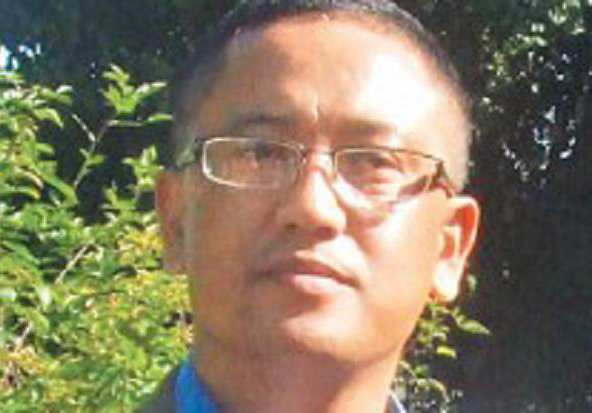
Jun 22, 2016
In a briefing paper published today, the ICJ explained the legal issues and political context of the case against Colonel Kumar Lama, a Nepali Army officer.
Earlier this month, Colonel Lama’s trial on allegations of torture of two Nepali detainees in 2005 resumed in the United Kingdom.
“This case is one of the all too rare occasions when the principle of universal jurisdiction has been applied in judicial procedures in the UK, if not the world over,” said Sam Zarifi, ICJ’s Asia Director. “The decision will have far reaching implications, not only for the victims in this case but for all victims of torture and other serious abuses around the world seeking justice.”
In January 2013, the UK exercised a form of “universal jurisdiction” to charge Colonel Lama on two counts of committing torture under Section 134(1) of the Criminal Justice Act, 1988.
The charges are based on allegations that Colonel Lama was involved in the torture of two Nepali detainees in 2005, at the height of Nepal’s decade-long internal armed conflict. Colonel Lama’s trial began in February 2015 in London. After a few weeks, however, the trial was adjourned because there were problems with interpretation in court. The trial began afresh earlier this month.
The briefing paper addresses questions around the charges against Colonel Lama; the political context in Nepal when the acts of torture allegedly happened; the principle of “universal jurisdiction”; and procedural questions around such trials in the UK.
“The case comes at a time when an agreement between the ruling parties in Nepal is threatening to entrench impunity for those who planned and carried out unlawful killings, enforced disappearances, torture and ill-treatment, and other serious crimes in Nepal’s civil war,” added Zarifi.
“It is an important and long overdue opportunity to challenge the systemic impunity for conflict-era human rights abuses in Nepal.”
Contact
Sam Zarifi, ICJ Asia-Pacific Director, t: +66-807-819-002; e: sam.zarifi(a)icj.org
Nepal-Lama Q&A-Advocacy-2016-ENG (full paper in PDF)
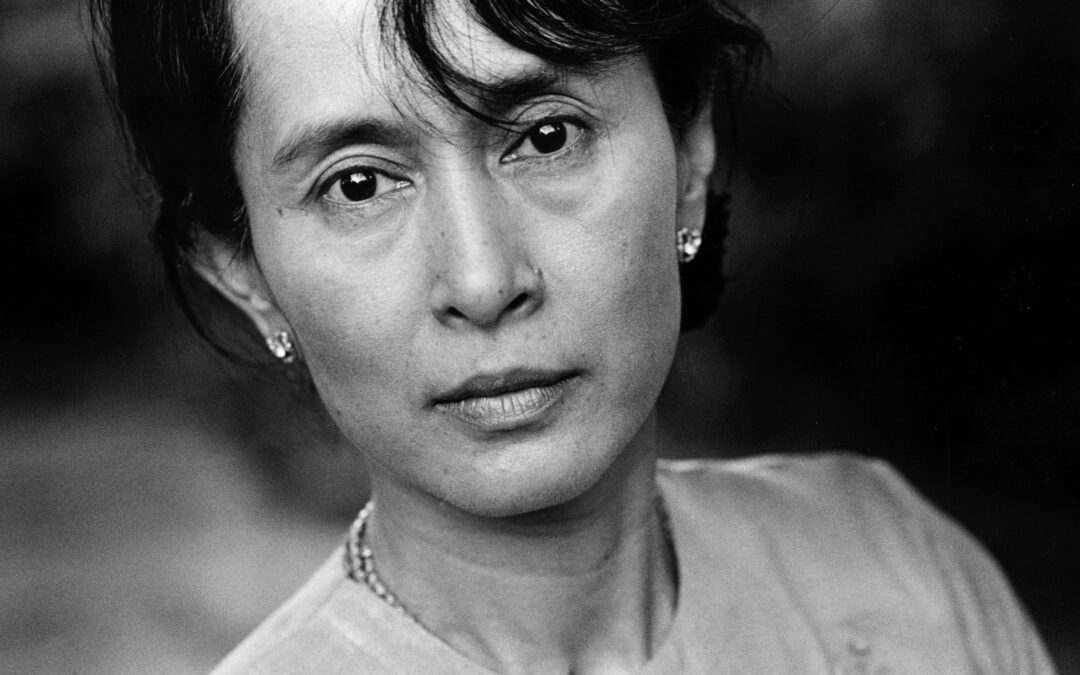
Jun 20, 2016
Myanmar’s new government, led by the National League for Democracy of Aung San Suu Kyi, must establish a clear plan for strengthening the rule of law and protection of human rights, said the ICJ today as it released its 14 General Recommendations to the new Government and Parliament.
“The NLD has a tremendous opportunity and obligation to reverse years of official rejection and neglect of the rights of the people of Myanmar,” said Sam Zarifi, ICJ’s Asia Director.
“Myanmar’s severe human rights problems can’t be solved immediately, or even for years to come, but it’s crucial for the new Government to announce its strategy and show its commitment to improving the lives and livelihoods of all people in Myanmar,” he added.
After close discussions with all branches of the Government, as well as civil society and international experts, the ICJ has identified areas in which the Government can immediately and in the long-term address human rights violations in Myanmar and outlines measures to be taken to ensure that all legislation is guided by the principles of non-discrimination, greater accountability, transparency and justice.
Among the key recommendations of the ICJ are:
- Strengthening the independence and competence of the judiciary as well as the Attorney General’s Office;
- Improving the Government’s ability to monitor and regulate the conduct of businesses and their impact on the rights and well-being of people;
- Repealing or amending laws and practices that discriminate on the basis of religious or ethnic identity (particularly at-risk groups such as the Rohingya), or sexual orientation and gender identity; and
- Ensuring accountability and redress for violations of human rights, especially when committed by State security forces.
“Access to justice for victims of human rights violations has been severely curbed in Myanmar over the past decades, with most of the population being consistently denied access to the courts and effective remedies as a result of unfair and discriminatory laws as well as poor court decisions,” said Zarifi.
“The military remains dominant in Myanmar, wielding undue influence over various sectors in the country, including the judiciary, and continues to enjoy impunity for gross violations of human rights and serious violations of international humanitarian law,” he added.
The ICJ says Myanmar should immediately engage with the international human rights community.
It must accede to the International Covenant on Civil and Political Rights, ratify the International Covenant on Economic, Social and Cultural Rights, and expedite accession to the Convention against Torture and the Optional Protocol thereto, and ratification of the Optional Protocol to the Convention on the Rights of the Child on the involvement of children in armed conflict, the ICJ adds.
Contact:
Sam Zarifi, ICJ Regional Director for Asia and the Pacific, t: +66807819002; e: sam.zarifi(a)icj.org
Vani Sathisan, ICJ International Legal Adviser for Myanmar, t: +95(0)9250800301; e: vani.sathisan(a)icj.org
Additional Information:
The ICJ’s General Recommendations relate to the following matters:
1. Independence of judges;
2. Independence of lawyers;
3. Reform of the Union Attorney General’s Office;
4. Land laws;
5. Investment law;
6. Bilateral investment treaties;
7. Special Economic Zones;
8. Offenses against religion;
9. Discriminatory laws targeting women and minorities;
10. Rights of the Rohingya;
11. Discrimination on the basis of sexual orientation and gender identity;
12. Criminal defamation and freedom of expression;
13. Peaceful assembly law; and
14. Ending impunity for violations of human rights.
Myanmar-Recommendation to NLD Gvt-Advocacy-Analysis Brief-2016-ENG (full text, in PDF)
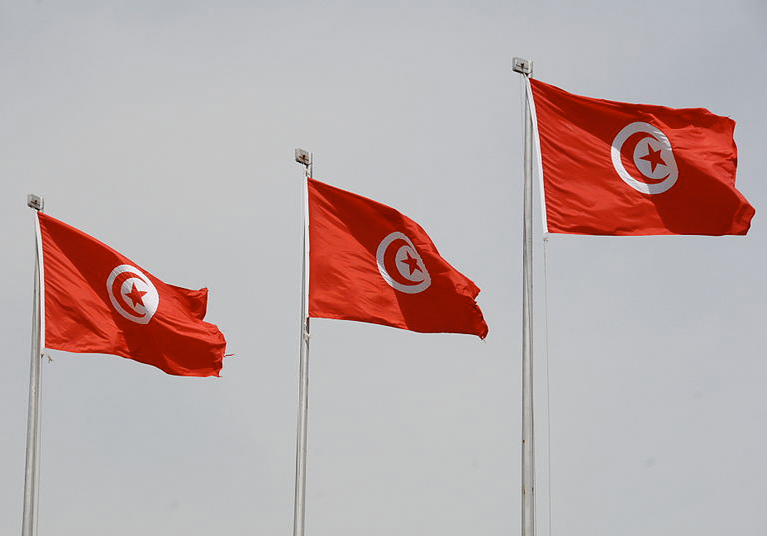
Jun 8, 2016
In a memorandum published today, the ICJ called on the Tunisian authorities to implement a comprehensive set of measures to fully realize women’s right of access to justice.
Despite some progressive legislation protecting women’s human rights, and the recent adoption of institutional and legal reforms of the justice system, the ICJ identified significant remaining obstacles undermining women’s access to justice in breach of Tunisia’s obligations under international human rights law.
“Women in Tunisia face numerous barriers accessing justice. While some are specific to their status as women, such as explicitly discriminatory laws, others are common to men and women but affect women and men differently or are predominantly experienced by women,” said Shirin Abu Fannouneh, Legal Researcher for the ICJ Middle East and North Africa Programme.
The ICJ memorandum analyzes some of the main obstacles to women’s effective access to justice in Tunisia, including inadequate laws failing to fully protect women’s human rights, such as the Criminal Code’s flawed, discriminatory definitions of rape and sexual harassment; laws perpetuating gender discrimination, such as certain child custody provisions of the Personal Status Code; structural and practical obstacles related to the administration of justice; gender stereotypes and norms undermining women’s ability and/or willingness to seek justice; and economic and social barriers.
“Obstacles in the way of women exercising the right of access to justice take various forms in Tunisia. Even if certain legal provisions were to be reformed in line with international human rights law, other hurdles – such as the biased attitudes of justice-sector actors and women’s own disadvantaged social and economic realities – would, if unaddressed, continue to undermine women’s ability to claim and obtain respect for their human rights,” added Abu Fannouneh.
The ICJ stresses that, under international human rights law, Tunisia is not only required to adopt a wide range of legislative, administrative, educative and practical measures to realize the right of access to justice for all, but it must also take specific steps to address women’s experiences and the numerous, specific obstacles they face when seeking to exercise their right of access to justice.
“Effective access to justice for women is not merely a matter of the right to access a mechanism to claim their rights. It also requires prohibiting all forms of discrimination and ensuring that men and women enjoy equal rights, including equality before the law and equal protection of the law, in law and in practice,” said Abu Fannouneh.
The ICJ identified a wide range of measures Tunisia must implement to eliminate these obstacles. These reforms include:
- amending existing legislation, including through the Draft Law on Violence against Women, to ensure that certain violations of women’s human rights are adequately criminalized, such as rape, including marital rape, sexual assault and sexual harassment;
- providing adequate legal aid and protection measures, for example to victims of domestic violence;
- training for judges, prosecutors, police officers and lawyers in addressing and overcoming discriminatory attitudes and gender stereotypes within the administration of justice; and
- taking steps to address certain social and practical realities, such as women’s disadvantaged status in society, their lack of financial independence and societal gender-based stereotypes and prejudices that ultimately impede the effective exercise by women of their right of access to justice.
“If women’s effective access to justice is to become a reality, women must be fully empowered to seek and obtain respect for their human rights. The Tunisian authorities for their part must adopt and implement comprehensive reforms to address all types of obstacles to making women’s right of access to justice a reality so that legislative advancements are not nullified by persisting discriminatory attitudes and practices,” added Abu Fannouneh.
Contact
Theo Boutruche, ICJ Legal Adviser, Middle East and North Africa Programme, t: +96 170 888 961, e: theo.boutruche(a)icj.org
Tunisia-Memo WA2J-Advocacy-Analysis brief-2016-ENG (full Memo in English, PDF)
Tunisia-Memo WA2J-News-Press releases-2016-ARA (full news in Arabic, PDF)
Tunisia-Memo WA2J-Advocacy-Analysis brief-2016-ARA (full Memo in Arabic, PDF)









